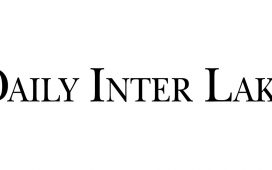A WEEK AFTER missing its deadline, the governor’s task force on transportation funding is scheduled to hold its final meeting on Tuesday with both Gov. Maura Healey and Lt. Gov. Kim Driscoll in attendance.
“The governor and lieutenant governor will be going to say thank you to the members,” said Matt Murphy, a spokesman for Matthew Gorzkowicz, the secretary of administration and finance and the co-chair of the task force. “Hopefully, we’ll be able to release something soon.”
It’s unclear whether task force members will take a vote on the report or merely provide feedback. Administration officials have been meeting with some members regularly to refine the language and the scheduled meeting suggests a consensus is forming.
According to sources, the latest draft of the report is very different from what was envisioned when the task force was created in February by executive order. The order charged the task force with “making recommendations for a long-term sustainable transportation finance plan that addresses the need for a safe, reliable, and efficient transportation system, including roadways, bridges, railways, and bus and transit systems.”
In her State of the State speech in mid-January, where she unveiled the idea for the task force, Healey said it was time to chart a new course for transportation financing in the clean energy era – a time when the electrification of homes and vehicles would render existing funding mechanisms, including the gas tax, increasingly obsolete.
“There are challenges and there’s a lot that needs to be done,” Healey said in her speech. “But I promise, under my administration, we will not kick the can down the road any longer on anything difficult.”
Sources say the task force is not coming up with a revolutionary plan for financing the transportation system of the future. It is also not following the model of New York, which sought to cover the cost of its future transportation needs by approving a basket full of smaller taxes and fees.
Instead, the tax force seems to be focusing on addressing the state’s more immediate needs by tweaking an existing revenue source – the millionaire tax. The tax – a 4 percent income tax surcharge on income over $1 million – has brought in more money than expected and the money that has been appropriated has gone disproportionately to education needs so far. In the current fiscal year, the split has been 59 percent education and 41 percent transportation.
Task force members say requiring an even split between education and transportation and using some of the money for operational needs and a portion of the proceeds to finance the issuance of bonds would yield a significant amount of money for the state’s overall transportation system.
It seems like a solid, short-term plan with the potential to stabilize and perhaps enhance the transportation system. But it also seems like a politically timid response to a long-term problem that has plagued the state’s transportation system for decades.
Absent so far are any of the specific new taxes and fees that Transportation Secretary Monica Tibbits-Nutt raised as possibilities back in April, including new tolls at the state’s borders, a payroll tax, and higher or new fees on Uber and Lyft trips and package deliveries.
Healey reprimanded Tibbits-Nutt after she made the comments, making clear that her hopes for the task force were not the same as those of her cabinet secretary. But the task force also appears to be going farther than what MassDOT staffers were suggesting in July, when the state’s undersecretary of transportation suggested the final report would be little more than a “tool kit” listing potential revenue sources and revenue uses with no prioritization.
Related
READ SOURCE









